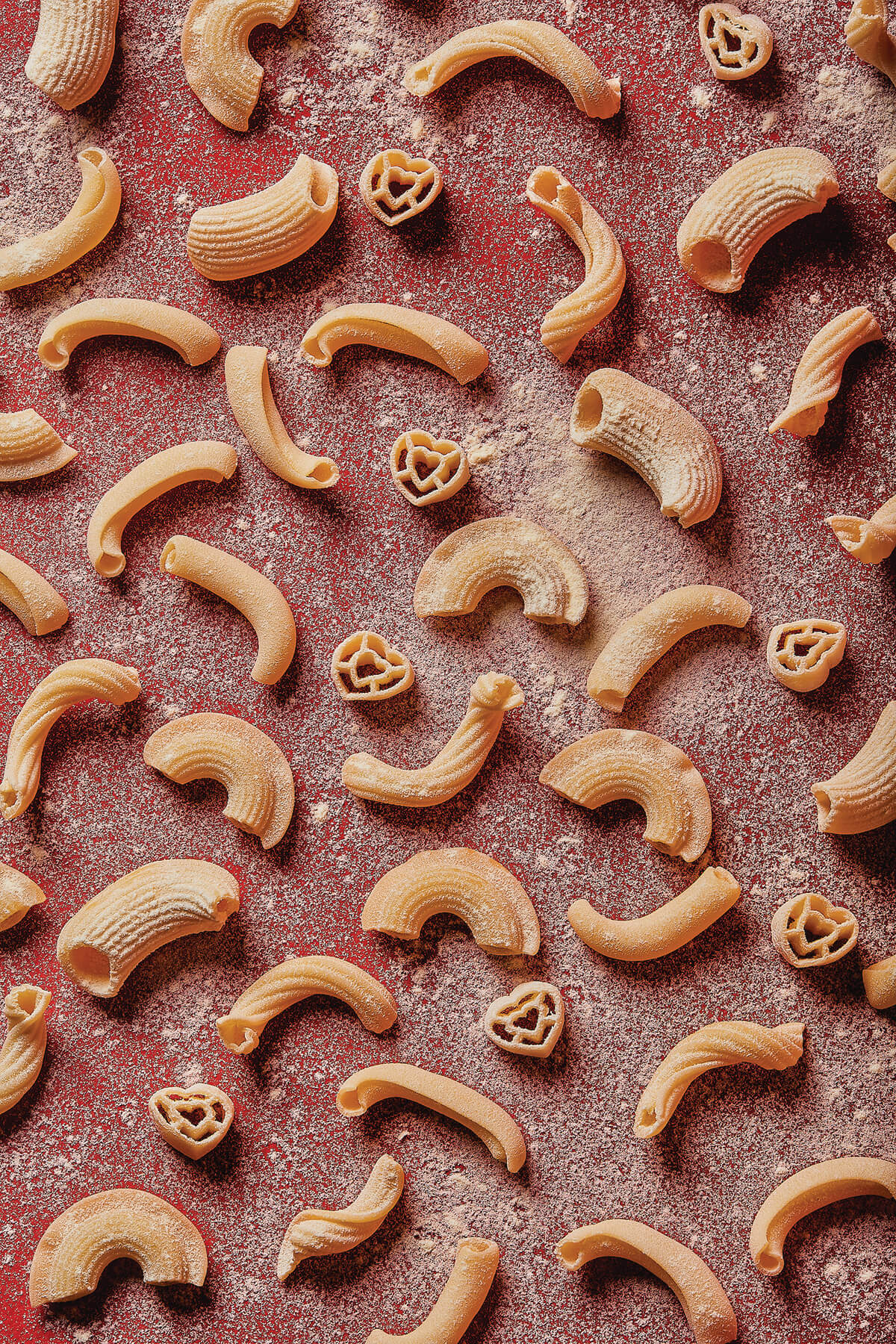Food & Drink
B-More Pasta Makes Noodles With a Cause
Monica Lapenta's new nonprofit doubles as a training program for Baltimore youth and a way to feed families in need.

In 2020, with the pandemic in full swing, Monica Lapenta, executive director of the Italian Cultural Center of Maryland, wanted to start a nonprofit organization that would create a training program for Baltimore youth and teach them about nutrition. Lapenta, who was born in Naples, Italy, came up with the idea of making vegan pasta. She decided to call her nonprofit B-More Pasta.
“Our pasta is one of the only fresh vegan pastas out there,” says Lapenta. “It’s just flour and water. The flour is either semolina from Italy or rye grain from Baltimore County.”
The pasta incorporates a range of superfood ingredients such as beet root, spirulina, and turmeric.
“Young people think of pasta as macaroni and cheese or spaghetti and meatballs,” says Lapenta. “This is new for them. Italian pasta is produced differently than in the U.S., where the pasta is enriched. The large manufacturing of pasta is like a glue pasta. It’s complicated for the body to digest.”
Though pasta and carbs in general often get a bad rap, B-More Pasta, available at Remington’s Made In Baltimore, Pigtown’s Culinary Architecture, and online, sets itself apart from brands that are mass-produced.
“Our pasta is digestible and has perfect nutritional value when you mix it with vegetables,” she says. “It’s not just a great product, pasta is a tool to learn about nutrition.”
B-More Pasta serves another purpose, as well. The revenue from retail sales goes toward feeding families in need, not just pasta but other items, too.
“We serve roughly 3,000 meals a week,” says Lapenta. “It’s wonderful that we can create jobs in Baltimore—and the fact that we are making a product close to my heritage makes it even better.”